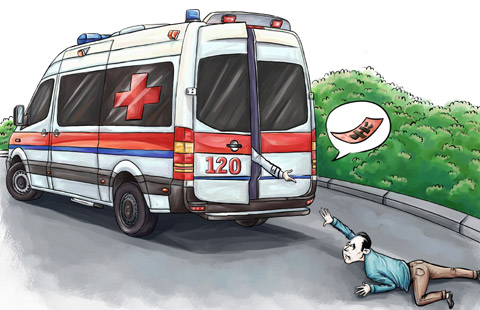Eliminating online terror is a war China must win
(Xinhua) Updated: 2014-06-24 20:27BEIJING - If terrorism is threatening the world like a cancer, online videos and audio promoting terrorism are like cordial that speeds up the growth of the cancer.
And China is determined to eliminate such content before it is too late.
Violence and terrorism have been on the rise in China, with the Xinjiang Uygur Autonomous Region suffering the most, especially from the East Turkestan Islamic Movement (ETIM).
Listed by the United Nations Security Council as a terrorist organization in 2002, the ETIM is not an isolated group, but part of an international terrorist system.
As is shown in a TV program released by China's State Internet Information Office on Tuesday, terrorists and their supporters are increasingly using the Internet and new communication technologies for the purposes of recruitment and incitement to commit terrorist acts, as well as for the financing, planning and preparation of their activities.
Investigations have showed that most of the suspects seized in recent bloody terrorist attacks in China were led on by terrorist video and audio products to carry out these atrocities.
Many of them had learned how to make explosives through online tutorials. They exchanged experiences of making explosives and propagating Jihad through chat tools, text messages and illegal preaching sites.
Some suspects admitted that they became more passionate about Jihad after watching these videos online.
As another example of the harm of online terror, the Tsarnaev brothers suspected of perpetrating the Boston Marathon bombings in the United States were recruited via the Internet and found online material that helped radicalize them.
All these cases showed that the Internet is not the cause, but a very powerful means of spreading terrorism and extremism.
That is why the Chinese authorities are so determined to rid the Internet of audio and video materials that promote terrorism and violence.
The campaign launched last week not only aims to prevent terrorist materials produced overseas from being disseminated in China, but will also contribute to global efforts in monitoring terrorism.p Among those who advocate absolute freedom of the Internet, there are concerns that the Chinese government's campaign to rid cyberspace of terrorist content could harm people's personal rights.
But they are wrong.
While it is important to protect freedom of speech online, the international community must make sure that terrorists are not free to end the lives of innocents.
Now that terrorists are using the Internet to spread their message, there is a risk that one day they will target the Internet itself, as it is a technology on which the world now depends.
China has taken serious steps to police the Internet. The country needs support and cooperation rather than doubt or criticism.
Otherwise, the kind of terrorists who shouted "Let there be holy war" as they attacked Beijing's Tiananmen Square in October -- as shown in the TV documentary -- will shout the same slogan elsewhere in the world.
In an era when information is freely available for anybody anywhere who wants to get involved in terrorism, China's actions concern the survival of everyone.
- Auditors uncover good, bad and ugly in govt spending
- Netizens sound off about officials' neglect of duty
- Hospital attack leaves one dead, another injured
- Revision to law targets makers of baby formula
- Premier Li's charisma wins
over British press - Cities along grand canal eye
new preservation - Guinness record for plank set in Beijing
- 'Reform needed' for vocational education
- S. China Karst extension listed as World Heritage Site
- China criticizes Japan's sex slavery record







